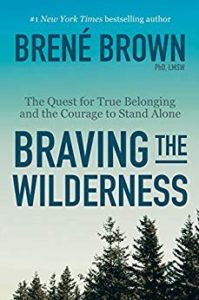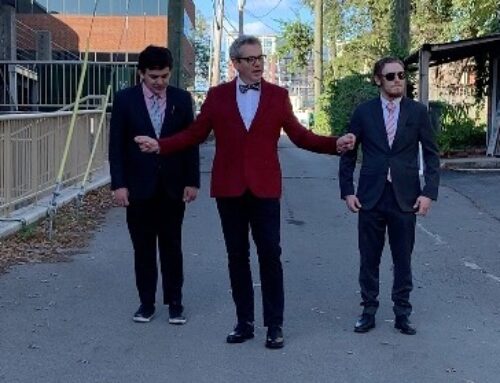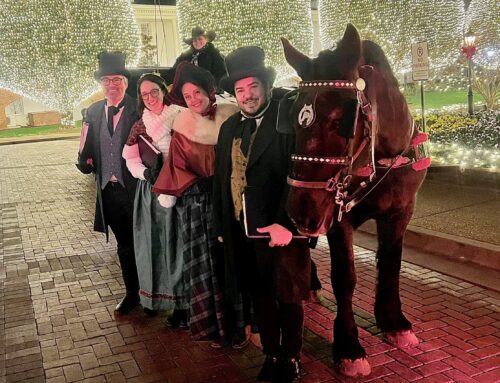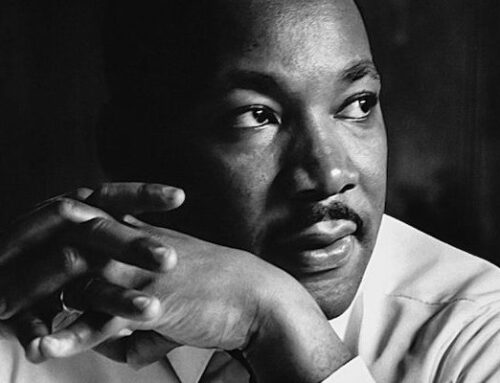True belonging is not passive. It’s not the belonging that comes with just joining a group. It’s not fitting in or pretending or selling out because its safer. It’s a practice that requires us to be vulnerable, get uncomfortable, and learn how to be present with people without sacrificing who we are.
– from Braving the Wilderness: the Quest for True Belonging and the Courage to Stand Alone by Brene Brown
 My former acting coach first introduced me to Brene Brown. Her studio takes actors through a specific teaching cycle where various feelings are explored and expressed using scenes from existing movies and TV shows. The student sticks with the same feeling until the instructor is satisfied with the truth of his performance, at which point, he is assigned a new feeling. Me? I was stuck on “vulnerability.” For weeks. She just wasn’t buying it. I was guarded and she saw right through it. “You should listen to Brene Brown,” she said.
My former acting coach first introduced me to Brene Brown. Her studio takes actors through a specific teaching cycle where various feelings are explored and expressed using scenes from existing movies and TV shows. The student sticks with the same feeling until the instructor is satisfied with the truth of his performance, at which point, he is assigned a new feeling. Me? I was stuck on “vulnerability.” For weeks. She just wasn’t buying it. I was guarded and she saw right through it. “You should listen to Brene Brown,” she said.
Brene Brown is a researcher-professor-author-social worker-speaker-wife-mother-Episcopalian-Texan. But mostly, she’s the Queen of Vulnerability. She’s researched it, taught it, and had a TED Talk about it go viral. I was a fan right away. I listened to her TED Talk, a workshop I found, and her audiobook Men, Women, and Worthiness. (It was Dr. Brown who introduced me to Terrence Real, whose book was a great help with my depression).
Braving the Wilderness: The Quest for True Belonging and the Courage to Stand Alone is her latest book and the first one that I’ve actually read – like words on the page read (well, it was the Kindle version). In it, Brown wrestles with the paradox of our core desire for community on one hand and our need for authentic agency on the other. She uses the term “true belonging” to differentiate from “fitting in.” “Fitting in” is the downplaying of one’s individuality as a prerequisite for acceptance in a group whereas “true belonging” is having the courage to be one’s self yet still be fully embraced by community. This demands both bravery and compassion. To that end she proposes “four elements of true belonging:”
- People are hard to hate close up. Move in.
- Speak truth to bullshit. Be civil.
- Hold hands. With strangers.
- Strong back. Soft front. Wild heart.
I had the priviledge of reading this while on a week-long camping trip with my family and some of our family’s best friends. It helped foster a deep sense of gratitude for these people in my life and the life of my family. True belonging is a gift. And it starts with the courage to be me.
Over to you: What are you reading?
See more book reviews From the Bookshelf.









Leave A Comment